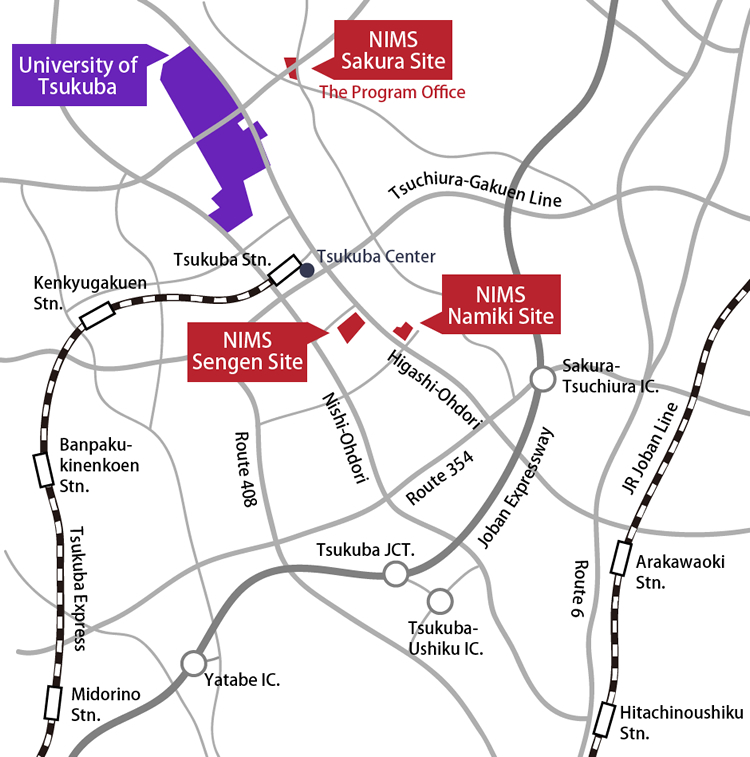Get in touch with us for further information about study opportunities at NIMS.
- Home
- Contact
Contact
FAQWe have compiled a list of frequently asked questions.
University Administrative office
Subprogram in Materials Science and Engineering
Administration Office for Materials Science and Engineering
< NIMS Sakura Site > 3-13 Sakura, Tsukuba city, Ibaraki 305-0003, Japan < University of Tsukuba > 1-1-1 Tennodai, Tsukuba city, Ibaraki 305-8571 JapanAccess and Transport
University Administrative office
Degree Program in Materials Innovation
Administration Office for Materials Innovation
1-1-1 Tennodai, Tsukuba city, Ibaraki 305-8571 Japantsukuba-materials@un.tsukuba.ac.jp
Access and Transport
Enquiries on NIMS Graduate Research Assistantship
Graduate Program Group
Division of International Collaborations and Public Relations
National Institute for Materials Science (NIMS)


